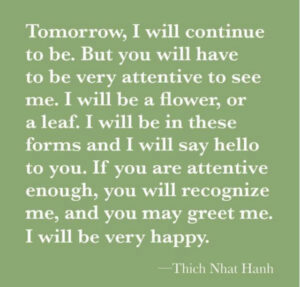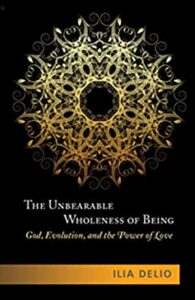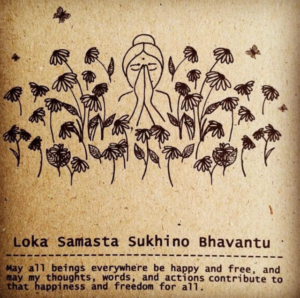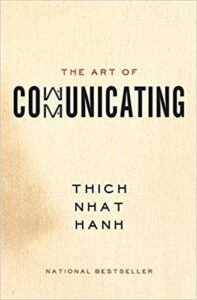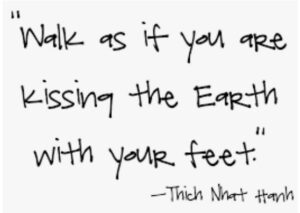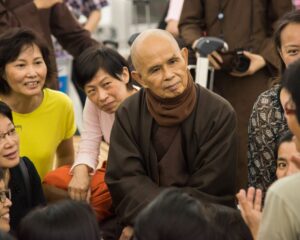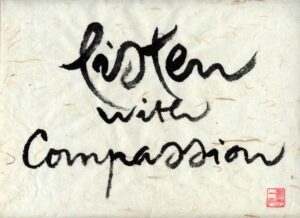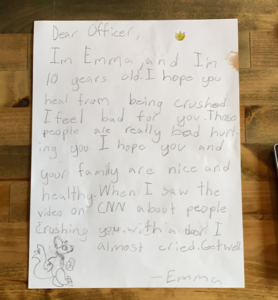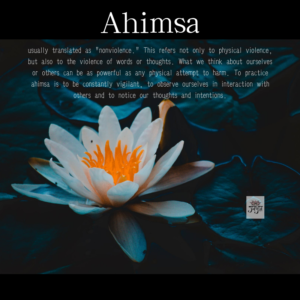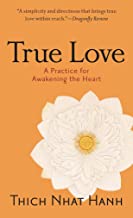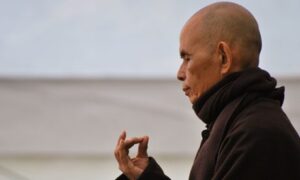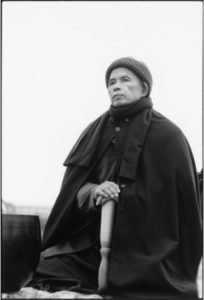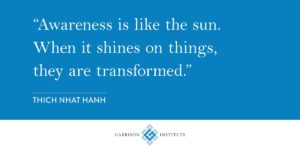Thich Nhat Hanh
Friday, February 18th, 2022
February 18, 2022From the Flourish Foundation:
‘With this shift in feeling, we soften the illusory crust of independence and begin to sense a natural belonging with all of life—interdependence. From this place of infinite belonging a deeper sense of care awakens and inspires us to consider our role in the co-creation of reality. More simply, we may choose clothes that support humane working conditions, foods that replenish the planet, a circular economy, and love toward those of a different race, country, or political party.’
“Only the grace of Spirit can enable us to let go of our fears. True prayer (spiritual dialogue) is fundamental for life in Spirit. It is that grace of conversion that opens up our hearts to realize the humble presence in our lives. Prayer of the heart is unceasing prayer, where Spirit breathes in us and our hearts are turned. This deepening of our lives in the divine life is the path to self-discovery. In and through prayer we discover our true selves, the self that Spirit has created each of us to be. . . .
Life in <Divine Presence> should be a daring adventure of love but often we settle for mediocrity. We follow the daily practice of prayer but we are unwilling or, for various reasons, unable to give ourselves totally…to settle on the plain of mediocrity is to settle for something les…”
-Franciscan theologian Ilia Delio
January 26th, 2022
January 26, 2022‘Now I’m wondering: is there a way to disentangle the story from the information? Yes, we need to take care of ourselves and each other. Yes, we need to stay aware and intentional, particularly considering the most vulnerable among us. But is there a way to do it with less ego and more observing tenderness?
It turns out, the interpretation of life is relentless. The suspension of interpretation, while brief and groundless, can be a sweet relief. I want less ego-building exercises and more compassion experiments in my life moving forward. I want less roller coasters and more clouds. I want less fear and more love’ -Courtney Martin
Courtney E. Martin is an American feminist, author, speaker, and social and political activist.
Thich
Nhat
Hahn
The Four Elements of Right Speech
‘Loving, truthful speech can bring a lot of joy and peace to people. But producing loving speech takes practice because we aren’t used to it. When we hear so much speech that causes craving, insecurity, and anger, we get accustomed to speaking that way. Truthful, loving speech is something we need to train ourselves in.
In Buddhism there’s a practice called the Ten Bodhisattva Trainings. Four of these 10 relate to Right Speech. A bodhisattva is an enlightened being who has dedicated his or her life to alleviating the suffering of all living beings.
A bodhisattva is someone who can speak with gentle, loving speech and who can listen with compassion.
The four bodhisattva guidelines of the Ten Bodhisattva Trainings for Right Speech:
- Tell the truth. Don’t lie or turn truth upside down.
- Don’t exaggerate.
- Be consistent. This means no double-talk: speaking about something in one way to one person and in an opposite way to another for selfish or manipulative reasons.
- Use peaceful language. Don’t use insulting or violent words, cruel speech, verbal abuse, or condemnation.
When we don’t, repercussions are brutal and, sometimes, irreparable. -dayle
‘Our suffering has been trying to communicate with us, to let us know it is there, but we have spent a lot of time and energy ignoring it.
We know that the suffering inside us contains the suffering of our fathers, our mothers, and our ancestors.
Our suffering reflects the suffering of the world. Discrimination, exploitation, poverty, and fear cause a lot of suffering in those around us. Our suffering also reflects the suffering of others.
If we understand our own suffering it will become much easier for us to understand the suffering of others and the of the world.
But unless we can listen to and acknowledge our own suffering, we will not really be able to help.’
On Being.
Remembering Thich Nhat Hanh, Brother Thay
‘The Venerable Thich Nhat Hanh, revered Zen master, teacher, and poet, died on January 22, 2022, in his native Vietnam. Brother Thay, as he was known by his community and students, transmuted what he had experienced of chaos and bloodshed in his country and his life into an ability to speak with equal measures directness and compassion to the many conflicts and bewilderments of contemporary life. Martin Luther King Jr. nominated him for the Nobel Peace Prize. He was a great teacher of the wonderful practice of “walking meditation.” He taught a way of living to face suffering, fear, and violence inside and beyond ourselves and yet to become “fresh, solid, and free.” Krista sat with him for this rare conversation in the early years of this show, and it has touched many. It is astonishing to re-experience the deep, enduring wisdom this monk leaves for our world now.”
Host Krista Tippett.
Saturday, January 22, 2022
January 22, 2022The Earth is everywhere. You may be used to thinking of the Earth as only the ground beneath your feet. But the water, the sea, the sky, and everything around us comes from the Earth. Everything outside us and everything inside us comes from the Earth.
—Thich Nhat Hanh
[Image: Center for Action and Contemplation]
“Thank you” is a simple phrase, but one that carries a lot of meaning. So many people act in ways big and small each day that help others for no expected monetary or other return other than the satisfaction that comes from the act itself.
Inn times of struggle, sadness, and fear, let us all remember the helpers in the world, and try to be helpers to others. Let us be kind and generous. And let us not take all that is good out there for granted. -Dan Rather
For our ancestors.
Mitákuye Oyás’iŋ
“The world is not a problem to be solved; it is a living being to which we belong. The world is part of our own self and we are a part of its suffering wholeness.”
—Llewellyn Vaughan-Lee
From Father Richard Rohr:
“Our very suffering now, our condensed presence on this common nest that we have largely fouled, will soon be the one thing that we finally share in common. It might well be the one thing that will bring us together politically and religiously. The earth and its life systems, on which we all entirely depend might soon become the very things that will convert us to a simple lifestyle, to necessary community, and to an inherent and universal sense of reverence for the Holy. We all breathe the same air and drink the same water. There are no Jewish, Christian, or Muslim versions of these universal elements. All water is “holy water” even before the benefit of a priest’s waved hand. It is always and everywhere two parts hydrogen and one part oxygen, and voilà—we have the absolute miracle of liquid water, absolutely necessary for all that lives.
This earth indeed is the very Body of God, and it is from this body that we are born, live, suffer, and resurrect to eternal life. Either all is God’s Great Project, or we may rightly wonder whether anything is.”
And…
Francis of Assisi called animals “Sister” and “Brother” and viewed humans as one part of a wider family of creation. Franciscan writers Ilia Delio, Keith Douglass Warner, and Pamela Wood recommend adapting a historic Christian practice of “examination of conscience” to focus on how we have harmed or helped our relationships with the Earth:
- Do I seek to eliminate from the world whatever keeps all creatures from their full development intended by their Creator: pollution, greed, overconsumption, loss of habitat, disease, war, extinction of species, oppressive laws and structures? . . .
- Have I encouraged others to take care for creation seriously? . . .
January 21, 2022
January 21, 2022Thay.
1926-2022
From his community at Plum Village in France:
With a deep mindful breath, we announce the passing of our beloved teacher, Thay Nhat Hanh, at 00:00hrs on January 22, 2022 at Từ Hiếu Temple in Huế, Vietnam, at the age of 95.
Thay has been the most extraordinary teacher, whose peace, tender compassion, and bright wisdom has touched the lives of millions. Whether we have encountered him on retreats, at public talks, or through his books and online teachings–or simply through the story of his incredible life–we can see that Thay has been a true bodhisattva, an immense force for peace and healing in the world. Thay has been a revolutionary, a renewer of Buddhism, never diluting and always digging deep into the roots of Buddhism to bring out its authentic radiance.
Thay has opened up a beautiful path of Engaged and Applied Buddhism for all of us: the path of the Five Mindfulness Trainings and the Fourteen Mindfulness Trainings of the Order of Interbeing. As Thay would say, “Because we have seen the path, we have nothing more to fear.” We know our direction in life, we know what to do, and what not to do to relieve suffering in ourselves, in others, and in the world; and we know the art of stopping, looking deeply, and generating true joy and happiness.
Now is a moment to come back to our mindful breathing and walking, to generate the energy of peace, compassion, and gratitude to offer our beloved Teacher. It is a moment to take refuge in our spiritual friends, our local sanghas and community, and each other.
We invite you to join our global community online, as we commemorate Thay’s life and legacy with five days of practice and ceremonies broadcast LIVE from Hue, Vietnam and Plum Village, France, starting on Saturday January 22nd. Please see our website for more details coming shortly: www.plumvillage.org/memorial
Let us each resolve to do our best over the coming days to generate the energy of mindfulness, peace, and compassion, to send to our beloved Teacher.
Over the coming hours on the Plum Village website, we will publish some inspirational chants, texts, and mindfulness practice resources, to support you to come together with your local sangha to generate a collective energy of mindfulness and compassion, and create your own ceremony or session in tribute to our Teacher. As Thay has always taught, nothing is more important than brotherhood and sisterhood, and we all know the power of collective energy.
We invite you to share your messages of gratitude or personal transformation and healing on our website: plumvillage.org/gratitude-for-thich-nhat-hanh
With love, trust, and togetherness,
The Monks and Nuns of Plum Village, France
Thích Nhất Hạnh
Gautier Capuçon
Hymne à l’amour
Édith Piaf/Marguerite Monnot – Paris Tour Eiffel
♡
Thay.
September 24, 2021
|
|||
|
-Zen Master Thich Nhat Hanh, Plum Village.
Ahimsa.
January 12, 2021[A 10-year-old girl’s letter to the police officer seen being crushed in the insurrection riot at the Capitol building on January 6th, 2021.]
“Sorrow is my meditation.” -Dr. Jan Peppler
‘Our suffering has been trying to communicate with us, to let us know it is there, but we have spent a lot of time and energy ignoring it.
The suffering inside us contains the suffering of our fathers, our mothers, and our ancestors.
Our suffering reflects the suffering of the world.
Understanding suffering always brings compassion.’
-Thich Nhat Hanh
We are beaten and blown by the wind, blown the wind, oh when I go there, I go there with you, it’s all I can do.
-U2
‘Despite the terrific beating we were experiencing at the hands of fate, each of us still living out his faith. Even in the presence of extraordinary pain, we were taking right action, we were attending to our practice, each in her own way.
As I listened to the lyrics of this song, the depth of my commitment to my own spiritual path became clear to me.
Marianne Williamson, in her spiritual guidebook a Return to Love, “If you want to end darkness, you cannot beat it with a baseball bat, you have to turn on the light.”
We do not need to enter a showdown with our self-destructive behavior, nor can we deny its existence. We must simply come to now it, and move on. We learn to focus wholeheartedly on positive behavior.’
-Rolf Gates and Katrina Kenison
Additionally, ahimsa/non-violence practiced not only in behavior and thought, but also a vow to disrupt violence.
From Bryan Stevenson, founder of the Equal Justice Initiative, lawyer, author, and professor: “We are all implicated when we allow other people to be mistreated. An absence of compassion can corrupt the decency of a community, a state, a nation.”
From yoga teacher, practitioner, author and activist Seane Corn.
Dearest friends,
I intended this letter to be about the New Year, wishing you all the brightest and the best for 2021.
Sadly, so quickly into the year, the Capitol building in the US was assaulted by domestic terrorists, and, once again, this nation is in trauma and turmoil.
I am devastated by the events in DC and horrified by the people who caused so much suffering to democracy in the US. It’s tragic but not surprising. It felt like it was moving in this direction for a very long time.
Although this moment in history is sad and discouraging, I continue to commit to re-imagining a future that is happy, healthy, and peaceful for ALL and holding on to hope that justice will prevail and healing will occur for us in the US and throughout the world.
I hope you are doing okay. That you are breathing, staying in communication with your friends, family, and support system, and doing your yoga, meditation, and healing work.
I am sending you so much love to you and your family.
God bless,

The world cries out for compassion.
♡
True love…and peace.
October 5, 2020Now, more than ever, peace, peace,
P
E
A
C
E
-Cathie Caccia
Buddhist Monk, Thích Nhất Hạnh, celebrates his 94th birthday on October 11th. It is reported today that he has stopped eating, and very frail.
The Plum Village Monastery in Southern France is sharing that, in his spirit and life, there is hope the next Buddha will not be only embodied into an individual, but into the sangha…community.
In true dialogue, both sides are willing to change. -Thích Nhất Hạnh
“The source of love is deep in us and we can help others realize a lot of happiness. One word, one action, one thought can reduce another person’s suffering and bring that person joy.”
May your transition be peaceful and calm, surrounded by love and grace. -dayle
In the 1960s, Thích Nhất Hạnh played an active role promoting peace during the years of war in Vietnam. ... During his years in the U.S., he met Martin Luther King Jr., who nominated him for the Nobel Peace Prize in 1967.
Right action.
May 13, 2019The Vietnamese Zen teacher Thich Nhat Hanh said, “The basis of Right Action is to do everything in mindfulness.” He teaches Five Mindfulness Trainings:
- The first training involves respecting life. In awareness of the suffering caused by the destruction of life, we work to protect all living things and this planet that sustains life.
- The second training involves generosity. We give freely of our time and resources where they are needed, without hoarding things we don’t need. We do not exploit other people or resources for our own gain. We act to promote social justice and well-being for everyone.
- The third training involves sexuality and avoiding sexual misconduct. In awareness of the pain caused by sexual misconduct, we honor commitments and also act when we can to protect others from sexual exploitation.
- The fourth training involves loving speech and deep listening. This means avoiding language that causes enmity and discord. Through deep listening to others, we tear down the barriers that separate us.
- The fifth training involves what we consume. This includes nourishing ourselves and others with healthful food and avoiding intoxicants. It also involves what books we read or what television programs we watch. Entertainments that are addictive or cause agitation might best be avoided.
The importance of compassion in Buddhism cannot be overstated. The Sanskrit word that is translated as “compassion” is Karuna, which means “active sympathy” or the willingness to bear the pain of others. Closely related to Karuna is Metta, ‘loving kindness.’
Five minute mindfulness meditation:
https://www.youtube.com/watch?v=wGFog-OuFDM
